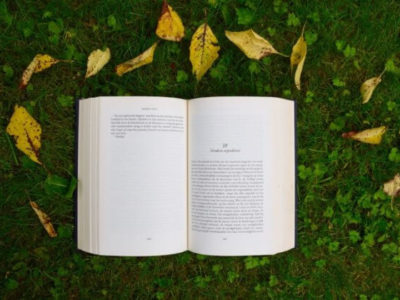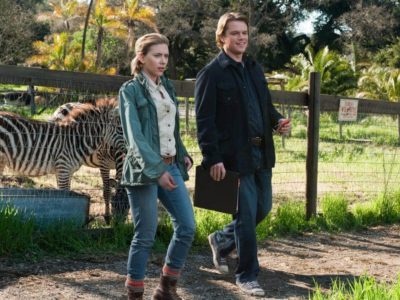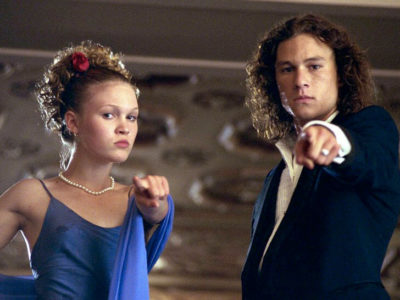Bookworm, classics/Shakespeare fanatic and maybe a pair of hipster reading glasses. That’s how you picture an English major. Not that the usual stereotypes are wrong, but what happens if you don’t fit in?
Take me for example. Two years ago, on my first day as an English major, my professor asked us to name our favorite author. My classmates named Dickens, Kafka and Hemingway. How typical. I frantically scrambled to come up with an appropriate answer before mumbling that I liked The Devil Wears Prada. Silence ensued. That day I went home and cried, wondering if I was really cut out for this. Was it too late to switch to Psychology?
You see, I’ve read a few of those big name authors, but I mainly prefer popular/contemporary fiction. When people gush about the “beauty” of poetry, I can’t relate. I read poetry in the same way someone reads the weather report. I read it, get the message and move on. Complex and eccentric characters captivate me in literature, but I hate Shakespeare with a burning passion and I’m not a grammar nerd.
You can how imagine how awkward I sometimes feel compared to everyone else. I’m willing to bet I’m not the only one who feels this way. The thing is though, we’re supposed to learn how to embrace those differences in college. Otherwise that fancy diploma would be a complete waste. We’d become manifestations of you-know-who’s beliefs (and I’m not talking about Voldemort).
Despite the representation in pop culture, no such thing exists as a typical “English major.” “I think it would be difficult to find anyone who would be able to fit into a mold society has made for them simply by a compilation of observations,” said Florida State University junior Julia Kleser. “Yes, I adore books and poetry and things of that ilk, and I’m certainly a sucker for the classics, but I also find great pleasure and popular young adult fiction—in fact the majority of books I read come from this genre.”
Who says you need to love obscure whatever to rock your major? Calling yourself a Jane Austen aficionado isn’t as important as your thirst. No, not for Ryan Reynolds, but for learning. “The most important thing for English majors is to ask why things are the way they are. And especially since we’re all interested in stories, how are the stories that we’ve told shape how we feel,” said University of Washington English professor Michelle Liu. “And because this is something that is true not only for English but also in how people are able to interpret data in science, storylines have so much place in shaping how we view and interact with the world.”
Instead of worrying you’re not well read, think about how what you do read changes you. “Whether due to books we read or those we write, we are always having characters swimming around in our heads and causing us to see the world in a different way,” said Kleser. “This allows us to be more respectful and understanding when encountering new pieces of literature, but it doesn’t mean we are all going to have the same taste and all enjoy the most tragic of Emily Dickinson poem.”
“In my view, all people, including English undergraduate majors, should read as broadly as possible to gain the most success for us individually and socially,” said University of Washington English professor E. Laurie George. In other words? Read a lot. “Our reading preferences get shaped early on in life by others—it’s important to test our taste boundaries by reading new literatures, expanding our literary horizons, especially in college.”
It doesn’t matter as much if you don’t crave Dickens the way people crave pizza. Just embrace your inner book nerd and read like there’s no tomorrow. “I value all literature and books whether they’re picture books for preschoolers or some dense literary work. If you want to be a writer, you must read—that’s how we learn to be writers,” said University of Washington English professor Shawn Wong.
If you chose English, you damn well chose it for a reason. You shouldn’t let the Internet’s stupid memes shame you. “The study of languages and literatures is so wide that not everyone has to do the same thing to succeed,” said Liu.
Don’t try to fit yourself into a narrow minded set of characteristics. “I’ve met so many English majors that don’t match typecasting of any sort, and I imagine it happens to all majors—in science as well as humanities. I’ve met many science majors who love literature of assorted periods, authors, genres—and these tastes all change over time,” said George.
In every dusty book, you’ll find valuable info that’ll probably change the way you think. That’s what professors care about. “The way that I teach is because I’m interested in how books enable people, how it shapes systems of feeling, shape how people relate to the world, so for the interest that I bring to English is less important to me that someone has read all the classics. It’s not a study of dead classics for me, [but] something that’s alive,” said Liu.
Repeat after me: English majors are just regular people. “I think I fit the idea that English majors are frustrated with certain parts of society, but I’m also of the party that critiques society for being a heteronormative, racist and patriarchal society,” said University of Florida junior Lissandra Dyer. Tbh that sounds like a normal person to me.
Underneath their hipster appearances and my lazy/sloppy one, we’re all pizza loving, nap craving twenty-somethings who really hate writing papers. We all spend enough time reading about and discussing complex characters. It’s time we accept that just like fictional people, English majors are just as complex, if not more, than anyone you’ll find in a book.

















